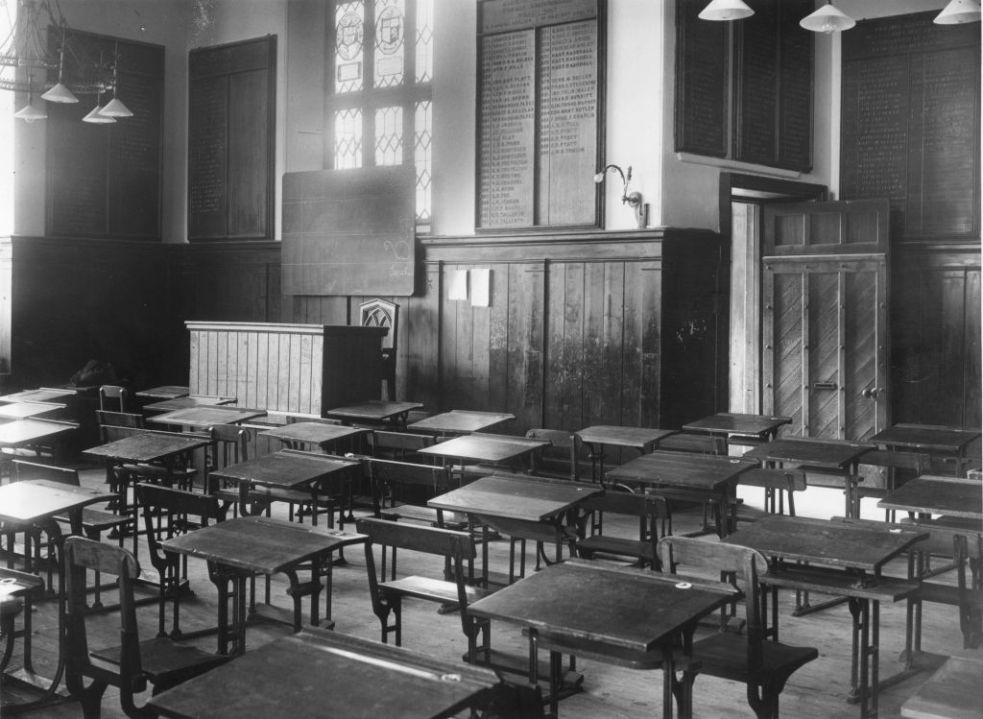This is about something that did not happen to me at school, an exam I dreaded, but never had to take. It was the only examination that ever really worried me, and it was called Common Entrance.
Do not confuse it with modern imitations bearing the same name. In those days, preparing for it involved (for me, anyway) translating English into Latin and French (a proper knowledge of irregular verbs and a wide vocabulary in both those languages was required). It also demanded thorny and tricky types of mathematics, an astounding grasp of largely Imperial geography – and a full knowledge of English history since the Conquest. I actually understood the jokes in 1066 and All That, for which modern children would need a decoder.
But after about six years of dreading it, I was spared from it. This is perhaps why, since the age of 13, I have been oddly untroubled by O-levels and A-levels or by the degree I was mysteriously awarded at the end of my university years. The only exam that gave me nightmares was the 120 words-per-minute shorthand test which I did in fact pass during my newspaper apprenticeship.
My teachers unceasingly warned us all of the wretched fates which would befall us if we did badly at Common Entrance. We weren’t, as George Orwell was, threatened with becoming ‘a little office boy at 40 pounds a year’. But we knew we would be doomed. I am not sure you could actually fail, but they let us know that there were terrible establishments to which you would go, creeping in shame, if your performance was not up to much.
Preparing for the Common Entrance exam involved a full knowledge of English history since the Conquest
I am sure these places cannot have been as bad as we were told. But cruel schoolmasters would dwell upon the despair and disappointment of our unhappy parents, who had spent so much on giving us a chance in life and would now face the ruin of their hopes. The very best of my teachers, a fearsome, witty man with stern grey hair and merciless spectacles, even used Holy Scripture to terrify us into serious learning, laying especial emphasis on the Parable of the Wise and Foolish Virgins. There would be wailing and gnashing of teeth in the outer darkness, if we were not properly prepared on the fatal day.
Even now, when I see portrayals of those virgins in stained glass windows and sculptures (the cathedral at Berne makes a great thing of them), I think of Latin conjugations. Today’s so-called equivalent of Common Entrance resembles the real thing much as the cosy softly furnished bedrooms of modern boarding schools resemble the hard mattresses and bracing night air of the dormitories in which new boys whimpered for home and the rest of us sniggered cruelly.
What was it all for? I imagined my educational future in a sort of Edwardian fantasy world, part Trollope, part Billy Bunter, in which I seem to have dwelt for much of the time. I pictured the great schools for which I was supposedly destined as ancient palaces of mellowed brick and worn stone, with friendly boys, welcoming tuck shops and clever masters in flapping gowns, the whole thing perfumed with hot buttered toast and glowing in plangent autumn sunshine. Somehow the warnings of bullying, fagging and the cane had not reached – or had not penetrated – my enchanted mind. I knew absolutely nothing of sex. I had read Tom Brown’s School Days but assumed that its publication had brought an end, forever and everywhere, to the savageries it portrayed.
I was very lucky with my own prep-school, which was small and mainly enlightened. Somehow, I suffered few of the abusive horrors which seem to have scarred most of my privately educated generation for life. So my image of the great moment of transformation from prep-school caterpillar to public school butterfly was hopelessly idealised, as I now see but did not then grasp.
I imagined the moment of being informed I had ‘got in’, summoned to the headmaster’s study where he would read out the longed-for telegram and perhaps hand me a golden sovereign. But I knew almost nothing of the schools involved. And in the end, I won a scholarship to an establishment I had never even heard of, and so never had to take the Common Entrance at all. From amid a sort of dream, I saw the approaching experience as something like the ridiculous image of English public schools, parodied by Orwell in his superb essay on boys’ weekly magazines: ‘There is a cosy fire in the study, and outside the wind is whistling. The ivy clusters thickly round the old grey stones. The King is on his throne and the pound is worth a pound. Over in Europe the comic foreigners are jabbering and gesticulating, but the grim grey battleships of the British Fleet are steaming up the Channel… Everything is safe, solid and unquestionable. Everything will be the same for ever and ever.’ Reader, even in 1965, it was not so. I should, as I now realise, have gone to a grammar school.








Comments